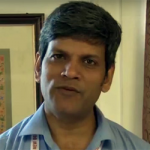The Lockdown and curfew has imposed too much stress on individuals as evident by current few news around the world. This has encouraged us to write a article which would help our readers to understand mental health in current scenario. On directions, after discussing the facts with our Editorial Board Member Dr Rachna Agarwal who is into Neurosciences and is working as Associate Professor in Institute of Human behavior and Allied Sciences (IHBAS) and her peer Dr Om Prakash, we have prepared points which can be considered to understand mental health problems and and to prevent complications associated with it.
The coronavirus pandemic has killed more than 150,000 people, and cases are increasing. The situation is creating anxiety and distress for many as reported by many news report of fighting between family members and suicides. Health experts are now warning our mental health is at stake. And the global health crisis is leading to a loss of sleep, concentration and stress to many. Stress as also highlighted by Prof Ashutosh Sharma, secretary DST is now concern of healthcare professionals.
Based on a dataset created by researchers Thejesh GN, Kanika Sharma and Aman, Indian news website theprint.in reported that 195 or more people have died of the lockdown. At least 40 people have died or committed suicide after India shut all alcohol stores. Another 39 people have committed suicide because they feared getting the coronavirus infection, thanks to the panic created by the lockdown, or because of loneliness or being quarantined.
On April 14, newindianexpress.com reported about, a 24-year-old migrant worker from the Indian state of Bihar who had committed suicide in Hyderabad after being upset over not being able to go home because of the lockdown. A farmer of U.P “Rambhavan Shukla (52) committed suicide by hanging himself from a tree on the outskirts of Jaari village,” Additional Superintendent of Police Lal Bharat Kumar Pal said. According to the family of the deceased, Shukla had been searching for labourers since the past few days, but he could not find any due to the lockdown.
Upset over the increased fights during the lockdown period, a Gurugram resident murdered his wife and committed suicide. According to his daughter, Pramod and his wife Sarita were frustrated over being confined together in house and were constantly quarreling. In continuing cases of tipplers in the southern states ending their lives due to non-availability of liquor during the lockdown, two men committed suicide in Karnataka’s Dakshina Kannada district. a Dalit youth committed suicide on Wednesday after he was allegedly beaten up by the UP police for breaking quarantine rules.
There are still many more suicide and murder stories that could not find place here but all these compel us to think and prevent these deaths and we tried to find answers from Psychiatrists.
According to Psychiatrist Dr Om Prakash, Associate Professor, Institute of Human Behavior and Allied Sciences, mental health problems have always been curse to patients and survivors during or after a disaster (CoV here). Conditions like Curfew, lockdown etc. may force individuals to adapt which in turn lead to adverse mental health outcomes. He discussed with us how management of psychological behaviour is possible by understanding and handling it with an effective approach.
We are calling CoV attack a disaster because of the casualties it has made; otherwise it is a Public Health emergency that require immediate attention. Many news and research have been published recognizing “Mental health” as an important factor in the management of a disaster.
History shows that the major health pandemic like The Great Plague of London (which killed 20% of London’s population), The Spanish Flu(50 million deaths), Asian Flu(1.1 million deaths), 1968 Flu influenza A virus (H3N2) Pandemic (1 million deaths) and 2009 Flu influenza virus, H1N1 Pandemic (201,200 deaths) all have caused Panic and stress among the patients and survivors.
Anxiety and distress disorders become very common and are much difficult to recognize by health care providers. In absence of physical illness, the person might be referred to a psychiatrist or a psychologist who evaluate a person for any stress disorder through specially designed interviews and assessment tools.
Another term ‘Disaster Psychiatry’ has been of particular use here because of kind of stress CoV is making on society. According to Ann E. Norwood, the term, ‘‘disaster psychiatry” describes an epidemiological approach to understand and treat the effects of mass casualty situations.
Before making society a victim of anxiety and distress disorder individuals may take few steps to minimize mental health problems.
In this regard two important reports in this direction are of particular use, first by WHO Department of Mental Health and Substance Use (released on 18th March 2020) and from National Institute of Mental Health and Neuro-Sciences (NIMHANS), Bangalore which discuss most of the causes and effects of psychological issues in detail including case studies of Coronavirus patients.
Both above reports discusses how this time of emergency and lockdown can generate stress throughout the population and how effective measures may possibly down regulate the symptoms of mental disaster in different sections of the society but NIMHANS report is of particular use here as it has discussed each and every aspect of mental health in CoV pandemic.
Since it is not possible to discuss all the recommendations in detail here, combinatorially and briefly, we can pay attention toward following points to maintain healthy mental conditions in a population of 1.3 billion either at times or after CoV crisis.
For General Population
1. Not to link COVID19 to any particular ethnicity or nationality
2. Not to refer people with the disease as “COVID-19 cases”, “victims” “COVID-19 families” or “the diseased”
3. Minimize watching, reading or listening news about COVID-19 that may make you anxious or distressed; always try to seek information only from trusted sources
4. To Protect yourself first
5. To give support to others (though social distancing is must)
6. To Find positive and hopeful stories and positive images of people who have experienced COVID-19
7. Honour carers and healthcare workers supporting people
For Mental Health workers
1. To Manage mental health and psychosocial well-being of their own and peers
2. Know how to provide support mental health and psychosocial support to people who are affected by COVID-19 and know how to link them with accurate information and best available resources.
3. Healthcare leaders should keep all staff protected from stress and poor mental health; Orient all responders, including nurses, ambulance drivers, volunteers, case identifiers, teachers and community leaders and workers in quarantine sites, on how to provide basic emotional an practical support to affected people using psychological first aid.
4. Manage urgent mental health and neurological complaints (e.g. delirium, psychosis, severe anxiety or depression) within emergency or general healthcare facilities.
5. Ensure availability of essential, generic psychotropic medications at all levels of health care.
Messages for carers of children
1. Help children find positive ways to express feelings such as fear, anger and sadness.
2. Keep children close to their parents and family
3. Maintain familiar routines in daily life as much as possible, or create new routines.
4. Take care of child’s demand because it is common for children to seek more attachment and be more demanding on parents during times of stress and crisis.
Messages for older adults, people with underlying health conditions and their carers
1. Older adults with cognitive decline/dementia, may become more anxious, angry, stressed, agitated and withdrawn during the outbreak or while in quarantine.
2. Share simple facts and give clear information about how to reduce risk of infection in words older people with/without cognitive impairment can understand
3. Make sure to have access to any medications that you are currently using for underlying health condition
4. Be prepared and know in advance where and how to get practical help if needed, like booking a taxi or food and requesting medical care.
5. Learn simple daily physical exercises to perform at home
6. Keep regular routines and schedules
Messages for people in isolation/Quarantine
1. Stay connect and maintain your social networks.
2. Pay attention to your own needs and feelings during stress.
3. Enjoy and relax in healthy activities. Exercise regularly, keep regular sleep routines and eat healthy food.
4. Do not bother about a near-constant stream of news reports about an outbreak as this can cause anyone to feel anxious or distressed.
For families
1. Every individual of family should practice self-care
2. Keep up a routine and maintain discipline
3. Talk to your family members frequently or when needed
4. To limit excessive exposure to media
5. Acknowledge your fear and anxiety, and then find ways to divert your attention
6. Avoid making major life decisions.
For Substance Users
1. To avoid use of tobacco or alcohol or drugs as much as possible
2. Talk to a friend, family member or a professional counsellor
3. To try Intellectual activities like brain games and other video games
4. To try Art therapy like painting, craft etc.
5. To replace substance use, put on patches or use substitutes
6. To find stress moderators like watching reading and listening
7. To practice Self-Hypnosis
Now, all the coping mechanisms that people would normally use to entertain have been blocked because of the imposition of nationwide curfew and lockdown. ‘For example, people used to be able to visit shrines. This would help them psychologically cope with the pressures, or they would visit their friends and relatives and share their troubles… but all this is impossible in the prevailing conditions. Normally, you would feel productive when you go out for a routine work. But now things have changed as people feel helpless and locked up in their homes, fearing for their lives because of cov transmission.
Things are not likely to improve soon, said Dr OM Prakash, ‘These symptoms will take at least six months to wear off provided things become normal. Wuhan, China had a lockdown period of 75 days but people are still living in curfew like conditions for their own safety as they fear resurrection of CoV in their city.
Sensing the need many Psychiatric organizations and individuals have started to give attention toward the mental problems in current outbreak and have been trying to give solutions. For example, Indian Psychiatric Society through network of 656 Volunteers/Psychiatrists from all over India is providing online consultation services, the Psychiatric Society of Goa (PSG) has started a service called Covidav to provide free online psychological evaluation and treatment to citizens during the lockdown etc.
About Experts

About Dr Rachna Agarwal
Dr Rachna Agarwal is Associate Professor in the Department of Neurochemistry in Institute of Human Behaviour & Allied Sciences(IHBAS). She has authored/co-authored more than 37 research publications and several books in the area of Neurosciences. She has been involved in teaching UG and PGs in leading medical colleges of India.

About Dr Om Prakash
Dr. Om Prakash is Psychiatrist by profession and is Associate Professor, Department of Psychiatry in IHBAS. His areas of interest include Schizophrenia, Manic-Depressive Psychosis, Depression, Anxiety, Neurosis and other similar Neurosis and Psycho Somatic Disorders. He is also involve in providing Psychological Counselling and Interventions in Phobias Adjustment Disorders. He is member of many Professional Bodies and Editorial board of Journals.
References
1. https://www.ncbi.nlm.nih.gov/pubmed/10934746
https://www.health.com/condition/infectious-diseases/worst-pandemics-in-history
2.https://my.clevelandclinic.org/health/diseases/4451-panic-disorder/management-and-treatment
3. https://www.who.int/docs/default-source/coronaviruse/mental-health-considerations.pdf
4.https://pediatrics.aappublications.org/content/136/4/e1120
5.https://gulfnews.com/photos/news/covid-19-india-lights-candles-in-a-show-of-solidarity-against-coronavirus-1.1586105797656?slide=4
6.https://indianpsychiatricsociety.org/wp-content/uploads/2020/04/IPS-LIST-OF-VOLUNTEERS-Phase-4-COVID-19.pdf